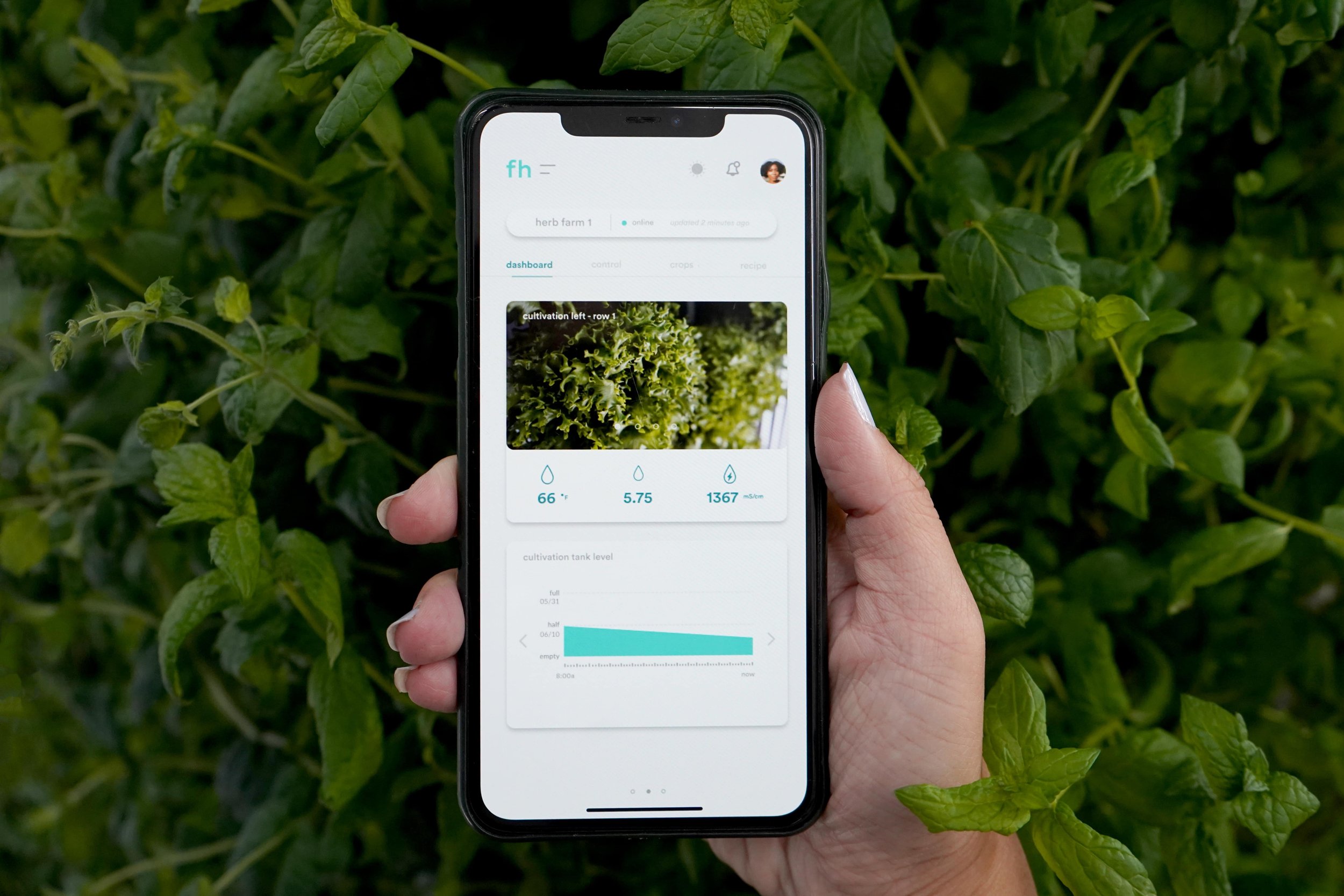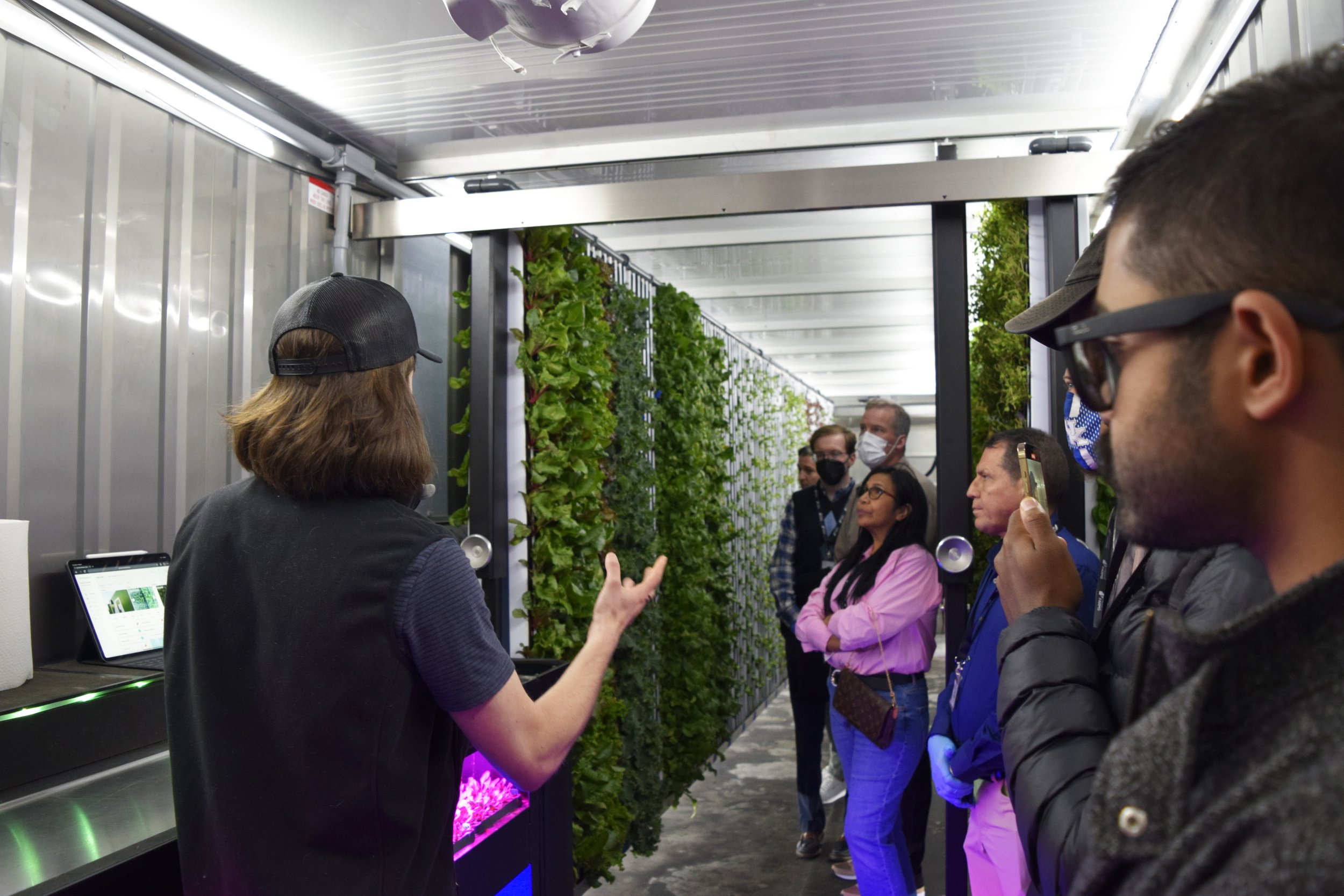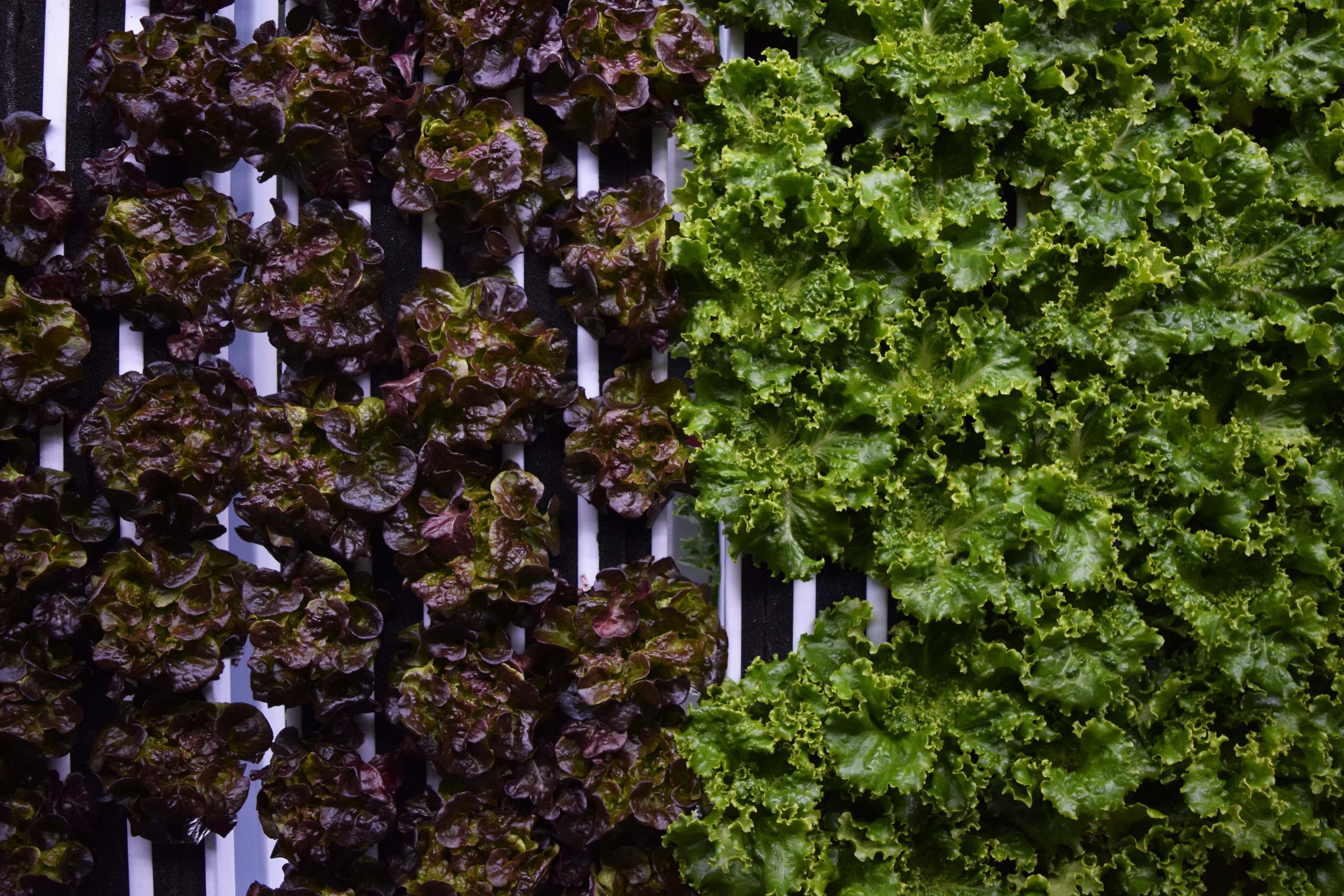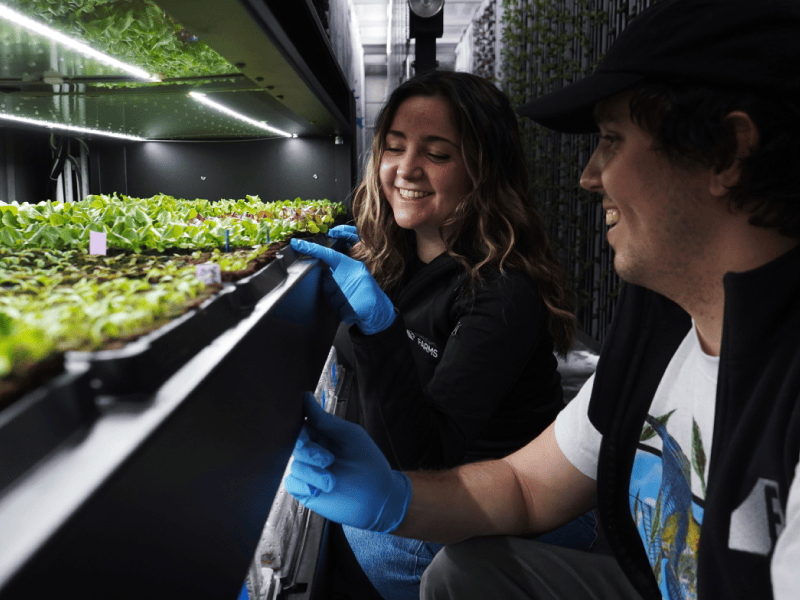We’ve got the answers
Freight Farms | Greenery™ | Farmhand® | Customer Experience | Farming
Popular Topics
-
One Freight Farms Greenery S is capable of growing lettuces, leafy greens, herbs, brassicas, certain root vegetables, microgreens, edible flowers, and many other crops in any location, regardless of exterior climate. To date, Freight Farms has experimented internally with over 500 different crop varieties.
One of the key innovations of the Greenery S is its flexible Cultivation Area, with aisles that can physically move to accommodate larger or smaller crops that cannot be grown in other container farms.
Learn more in our Crop Guide!
-
A farm costs $3,000 USD/month or if you were to buy it directly it would be $180,000 USD. This is possible because of two ways to get the farm: buying it directly or enrolling in “farm-as-a-service” through Growcer Fund. Introduced in 2024 by Growcer, the parent company of Freight Farms, this farm-as-a-service model makes it easier for communities everywhere to begin growing by paying $3,000 USD per month.
-
A standard farmhand Enterprise subscription for the Greenery S costs $2,400 per year for one farm user. Additional farm users can be added for $300 per year, and additional farms can be added to a farmhand subscription at a 50% discount.
Older farm models can upgrade to farmhand Enterprise to access new features. Click here to learn more.
Learn more about farm automation software cost
-
Freight Farms has a dedicated Customer Support Team that is there with you from the moment you purchase a farm. Each customer is matched with a designated support representative, so you’re always speaking with someone who understands your history and situation.
Our Customer Experience Team trains you at our Farm Camp and supports you as you grow your first harvest. They guide you through delivery, installation, launch, first harvest, and beyond! Learn more about customer support.
-
Yes. One container farm requires approximately 20–30 hours of labor per week. One person can comfortably operate two container farms.
-
Hydroponics is the method we use to grow inside the Greenery S. Hydroponics is an alternative farming method that grows plants without the use of soil. Instead, plants’ roots are submerged in nutrient-rich water that provides the plants with all the nourishment they need. You can learn all about hydroponics and the different types of systems — including the ones used in our farms — in Hydroponics 101.
-
Yes! Microgreens grow well in Freight Farms and are an excellent way to increase your revenue. They can be grown in the extra space in the Nursery troughs of the Greenery S, though some farmers go even further and install a grow rack across from the Nursery Station to maximize their output per square foot and meet the local demand for microgreens.
Microgreens can be grown in the Greenery S in about 10–12 days. Learn more in our blog about microgreens.
-
Yes! The best way to hear from our farmers is to tune into one of our upcoming webinars or watch previous interviews. If you are closer to purchasing a container farm and would like to speak directly with a Freight Farmer, our Account Executives can help arrange this.






